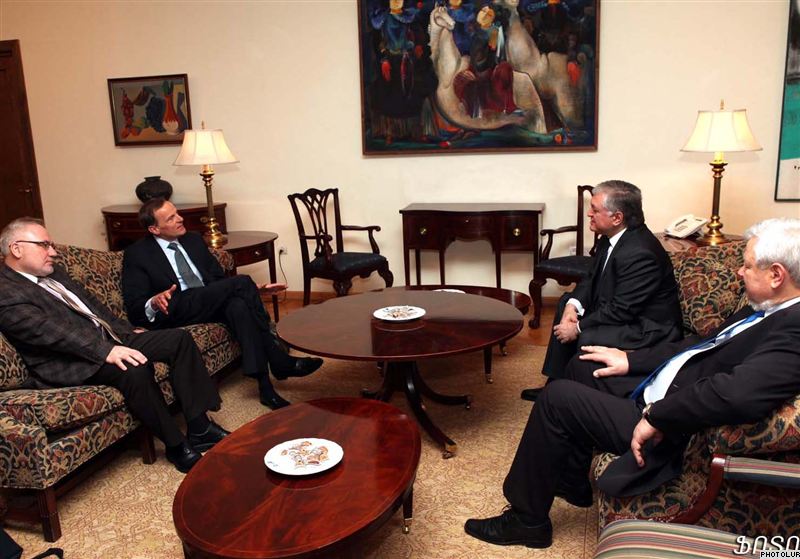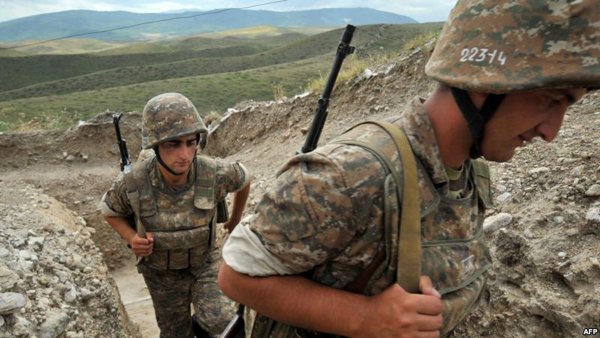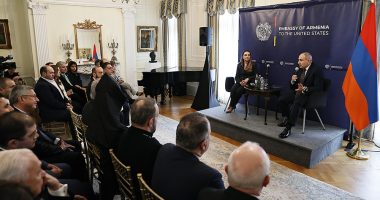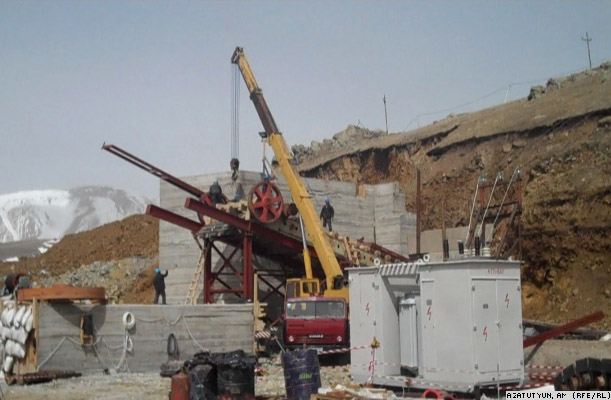

One of the document was sent from the United States embassy in Baku on February 16, 2007, Israeli newspaper Ha’aretz wrote on Sunday. It says that Azeri President Ilham Aliyev’s security adviser had met with Mossad representatives as well as the then-Israeli Deputy Defense Minister Ephraim Sneh.
It also highlights a meeting between Aliyev and Israel’s former Foreign Minister Tzipi Livni in January that year during the World Economic Forum in Davos.
The cable also says that the two sides signed two security agreements.
In 2008, Azeri daily Yeni Musavat cited a political analyst at the University of Washington’s Institute for Middle East Studies as pointing out “extensive covert and overt preemptive cooperation in security, intelligence and military areas between Azerbaijan and the Israeli intelligence services, Mossad” in the ex-Soviet republic.
He also referred to installation of “highly-advanced satellite espionage equipment on the Azeri soil, wiretapping centers in frontier areas, eavesdropping centers in the Caspian Sea and continuous training of Azeri intelligence and security agents in Israel” as instances of the collaboration.
The cables also reveal that
Turkey and Israel were two of Azerbaijan’s primary supporters in the Nagorno-Karbakh war. Israel helped re-equip the Azerbaijani forces immediately after the war. Since 2005, Israel has sold surface-to-air missiles, rocket launchers, communications equipment, drones, mortars, ammunition military satellites and more. Israeli firms have upgraded Azerbaijan’s Soviet-era T-72 tanks and installed a public surveillance system in the capital of Baku. The neoconservative Middle East Quarterly notes that more recently, “Israeli firms built and guard the fence around Baku’s international airport, monitor and help protect Azerbaijan’s energy infrastructure, and even provide security for Azerbaijan’s president on his foreign visits”.
The cables state that: ”Through its close relations with Israel, Azerbaijan gets a level of access to the quality weapon systems it needs to develop its army that it cannot obtain from the US and Europe due to various legal limitations, nor from its ex-Soviet suppliers, Belarus and Ukraine. Where other Western nations are reluctant to sell ground combat systems to the Azerbaijanis for fear of encouraging Azerbaijan to resort to war to regain [Nagorno-Karbakh] and the occupied territories, Israel is free to make substantial arms sales and benefits greatly from deals with its well-heeled client.”
Another part of the relationship is also defined by the mutually perceived threat of Iran. The 2009 cable notes, “Much like Israel, Azerbaijan perceives Iran as a major, even existential security threat, and the two countries’ cooperation flows from this recognition.” The 2010 cable quoted above notes that Aliyev, like Israel, supports Iran’s “economic isolation” and believes “it could be effective if enforced by a broad coalition.”
One other revelation is that the Israeli-Azerbaijani relationship “also affects US policy insofar as Azerbaijan tries, often successfully, to convince the US pro-Israel lobby to advocate on its behalf.” With this the Aliyev government joins a long list of authoritarian regimes — from the late Mobutu regime in the Democratic Republic of the Congo to Central American dictatorships in the 1980s — that have attempted to use Israel’s close ties with the United States to ingratiate themselves to Washington.
The 2009 cable ends by stating that “Israel’s relations with Azerbaijan are based strongly on pragmatism and a keen appreciation of priorities. Israel’s main goal is to preserve Azerbaijan as an ally against Iran, a platform for reconnaissance of that country and as a market for military hardware. … It is apparent to [US officials] that for now both sides are well satisfied with the bilateral state of affairs.”
Open Letter on the Proposal to Rename the Armenia-Turkey Border Crossing After Talat Pasha
We express our deep concern and disappointment regarding the recent proposal introduced…
- MassisPost
- July 3, 2025
- No comments
- 2 minute read
Pashinyan’s Visit to Turkey and Beyond
By KRIKOR KHODANIAN At the invitation of Turkish President Recep Tayyip Erdoğan,…
- MassisPost
- June 29, 2025
- No comments
- 3 minute read
“I Still Can’t Believe What Happened on June 20”
By LUSYEN KOPA Exactly three months ago, I wrote an article titled…
- MassisPost
- June 26, 2025
- No comments
- 4 minute read
Anniversary of the Immortality of the Twenty Hnchakian Heroes
By KRIKOR KHODANIAN 110 years ago these days, the prominent figures of…
- MassisPost
- June 15, 2025
- No comments
- 3 minute read










